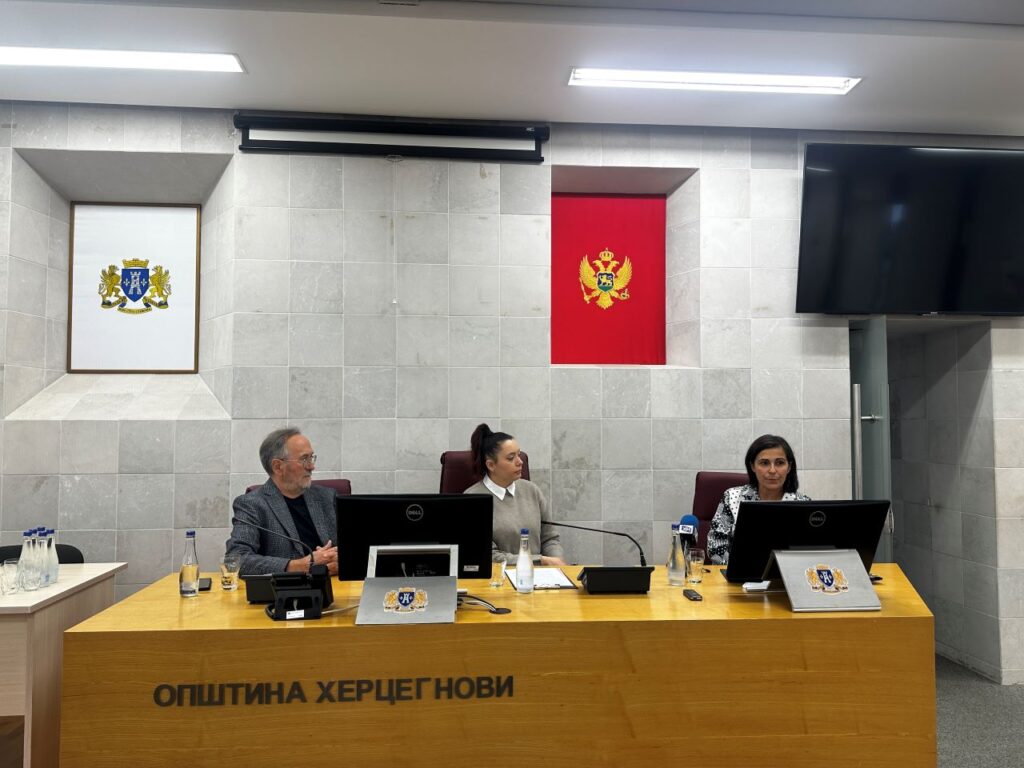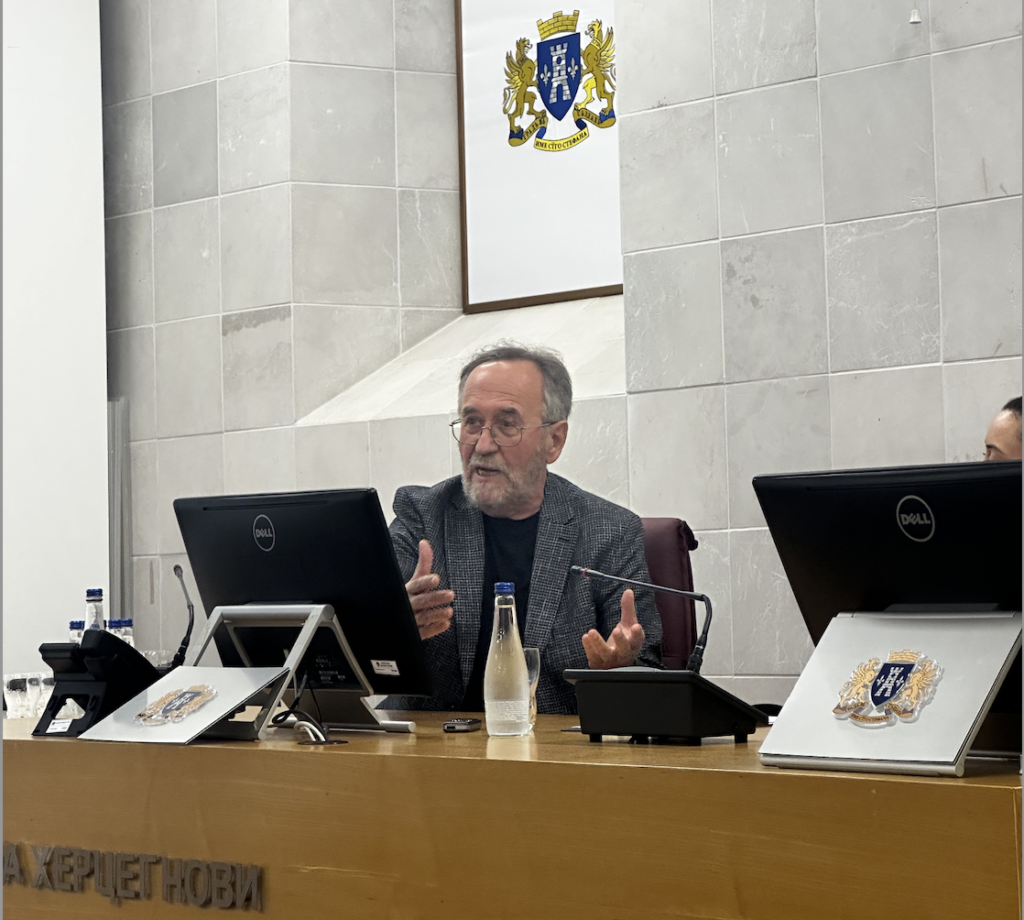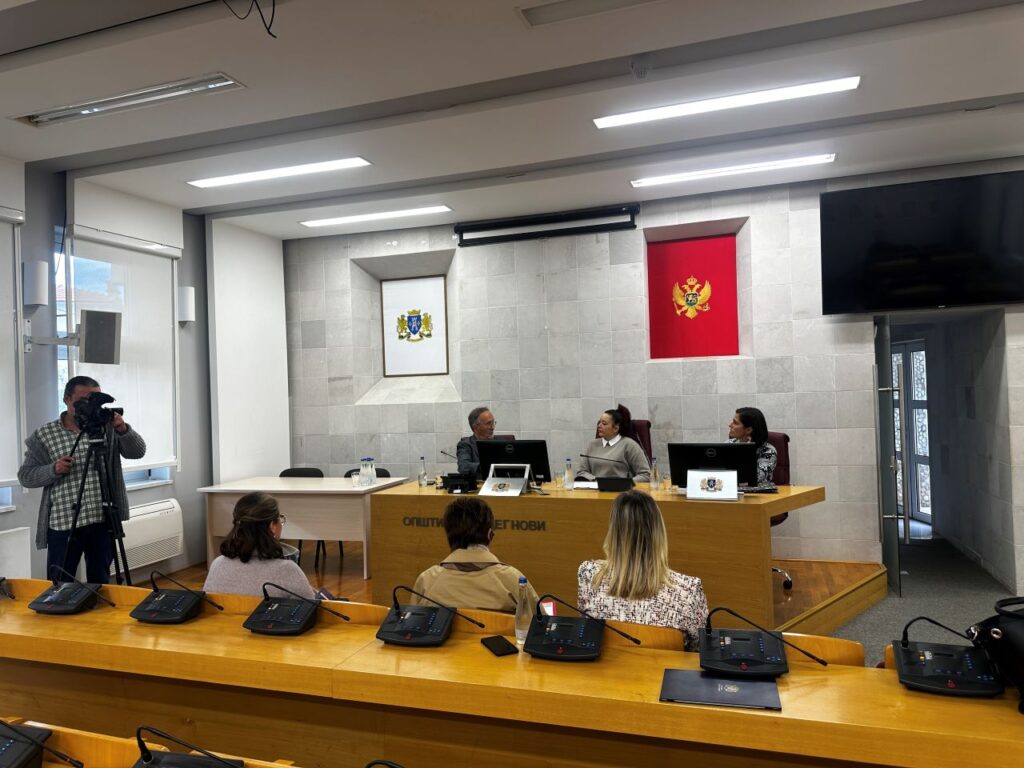“For a deeper understanding of diversity, curricula need to include more content on tolerance, human rights, and intercultural dialogue. Introducing civic education as a mandatory subject in primary and secondary schools is essential for promoting multicultural values in Montenegrin society,” was one of the key messages at the public discussion on intercultural development in various Montenegrin municipalities, organized today by the Centre for Civic Education (CCE) at the Herceg Novi Municipality Assembly, with the support of the Ministry of Human and Minority Rights, as part of the project “Harmony in Diversity.”
“I am pleased that we have gathered today to discuss a topic that is an integral part of Herceg Novi’s identity. Throughout its rich history, Herceg Novi has been a symbol of multiculturalism, coexistence, respect, and mutual appreciation,” said Dragana Stanišić, Vice-President of the Herceg Novi Municipality Assembly, in her opening remarks. “In a time when challenges to multiculturalism manifest in various ways, we must find the strength to strengthen cohesion in society. It is important to move from passive acceptance of differences to actively building bridges between communities through interculturalism. History teaches us that diversity is our greatest wealth, and cooperation is the key to overcoming divisions,” Stanišić emphasized.
Duško Vuković, journalist and media educator, believes there is a lack of understanding of the importance of multiculturalism, which is also reflected in policies. “I recently spoke to students about media literacy and mentioned that in Montenegro we practically do not know each other. I have always advocated the view that young people should, during their education, become better acquainted with diversity. For example, after World War II, labour actions were one of the attempts by the authorities to integrate young people into the creation of the new state. Today, we cannot organize such actions to motivate young people, but there are ways to channel the same energy that labor actions once had in integrating different groups,” he stated.
“It is a serious question how to reform the educational system and adapt it to the needs of society,” he warned, emphasizing the importance of working with young people. “Some older generations are irreparable. If we want to prepare the for the future, working with youth is necessary, and that includes education reform. We can have excellent lectures, but if you don’t bring young people face-to-face, so they can see, socialize, and get to know each other and their differences, we won’t accomplish much,” concluded Vuković.
Slađana Samardžić, a sociology professor at the Secondary School “Ivan Goran Kovačić,” commented on CCE’s research on multiculturalism, describing it as “a wake-up call for all societal actors to recognize the severity of the problems we face”. From a sociological perspective, multiculturalism in Montenegro offers potential for building a socially cohesive society that celebrates diversity. However, challenges related to segregation, political instrumentalization of identity, and social inequalities must be recognized and addressed. From a sociological perspective multiculturalism in Montenegro offers potential for building a socially cohesive society that celebrates diversity. However, challenges related to segregation, the political instrumentalization of identity, and social inequalities must be acknowledged and addressed,” she said.
“The key to success lies in focusing educational policies on promoting intercultural dialogue, reducing social distance, and developing a shared identity that includes all groups in society. Young people in Montenegro have the potential to contribute to building a healthy multicultural society, but they are currently not sufficiently engaged in the promotion of civic values. The main obstacle is the lack of educational programs that systematically address topics related to multiculturalism and human rights,” Samardžić stated.
Today’s forum in Herceg Novi is the sixth and final event in this series, which included similar events in Bar, Bijelo Polje, Podgorica, Plav, and Nikšić. The goal of these forums is to strengthen dialogue and exchange of perspectives between institutions, civil society, media, and citizens, in order to identify key challenges and needs in the development of interculturalism in local communities.
Nikola Đurašević, Programme associate



